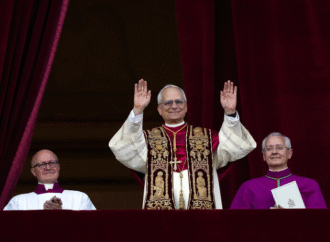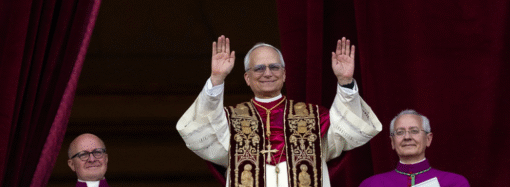During the recent election, most of you were probably called either a “conservative” or a “liberal”. And in many cases, this categorization of you was attempted as a subtle, or not-so-subtle, insult.
Other examples of backhanded categorizations that may have been hurled at you in recent months include “religious”, “serious”, “foodie”, “homebody”, “hipster”, “crunchy”, or “shy”.
Why are so many people today so anxious to categorize you?
Well, first of all I should clarify that categorization is a normal part of how human beings come to know. The act of categorizing things into various traits such as color, shape, and size begins almost instantaneously in the mind upon encountering an object. The more complex categorization of things—such as philosophical movement, or a period of history—takes more time and reflection, but is still an important part of how the world becomes intelligible to us.
But as Francis Bacon said, “Knowledge is power,” and the act of categorizing, or naming, is also historically associated with gaining power over something, or somebody. As just a few of many examples, consider the account in Genesis when God grants man dominion over his creation through giving him the power to name all of the animals, or Smaug’s attempt to trick Bilbo into revealing his name in The Hobbit, or the story of Rumpelstiltskin.
In today’s world, heavily influenced by Cultural Marxism, the act of categorizing has become a weapon of choice. The aggressor usually thinks that he or she is beyond categorization, but seeing categorization as a tool to exercise power over another, is only too happy to quickly label those with whom he or she disagrees. It’s a way of communicating to the other person that “I’m more sophisticated, nuanced, and mysterious than you, who are capable of being reduced to one of these categories.”
And often, the categories used are very limited and limiting. As an example, I’ll return to the terms “conservative” and “liberal”. Most people I know don’t really want to be labeled as a “conservative” or “liberal”. Even if their beliefs have some overlap with the tenets associated with these terms, they know there’s a lot of ambiguity with them (for instance, not all regarded as conservatives are against innovation and progress, and not all regarded as liberals are for the complete overhaul of traditional values.) Plus, they don’t wish to give the impression that “conservative” or “liberal” should have a leading role in describing how they view themselves and the world. I think one can argue some of the same limitations are present when we primarily categorize people according to race and sexual orientation.
Again, I’ll emphasize that categorization is a necessary part of human knowledge. I’m not advocating for relativism here. What I am advocating is the position that persons are infinitely complex, and we should exercise more caution in reducing others—or letting ourselves be reduced—to the often simplistic categories peddled by politics and media today.
For the underlying motivation of these categories is not to know, but to dismiss.
















Leave a Comment
Your email address will not be published. Required fields are marked with *